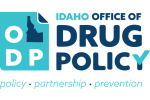In 2019, over a million drivers were arrested for driving under the influence and over 10,000 people lost their lives as a result of alcohol related traffic crashes. While these cases make up a huge percentage of criminal court dockets, research shows that convictions and incarceration do not change criminal behaviors or reduce the likelihood of new offenses from high-risk impaired drivers. In fact, after jail or prison incarceration, the majority of high-risk impaired drivers return to their communities, and without appropriate intervention, are a significant risk to reoffend.
Through the expertise of the Director of National Center for DWI Courts and the American Probation and Parole Association Probation Fellow, this interactive presentation will provide an overview and continuum of the most recent evidence-based practices in addressing the challenges of assessing, sentencing, and supervising high risk impaired drivers. This includes research on the use of assessment tools to determine risk and needs as well as behavioral characteristics of high- risk impaired drivers. Participants will learn best practices in community supervision strategies, available alcohol countermeasure technologies, issues surrounding poly-substance abuse and the use of DWI Courts to reduce risk to the community.
• Participants will identify three alcohol technology countermeasures and research-based practices that courts should be using to reduce the possibility of re-offense by high-risk impaired drivers
• Participants will identify how the Impaired Driver Assessment can impact sentencing and community supervision strategies
• Participants will identify how DUI Courts can effectively reduce recidivism for high-risk impaired drivers







